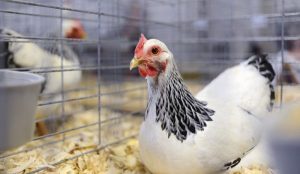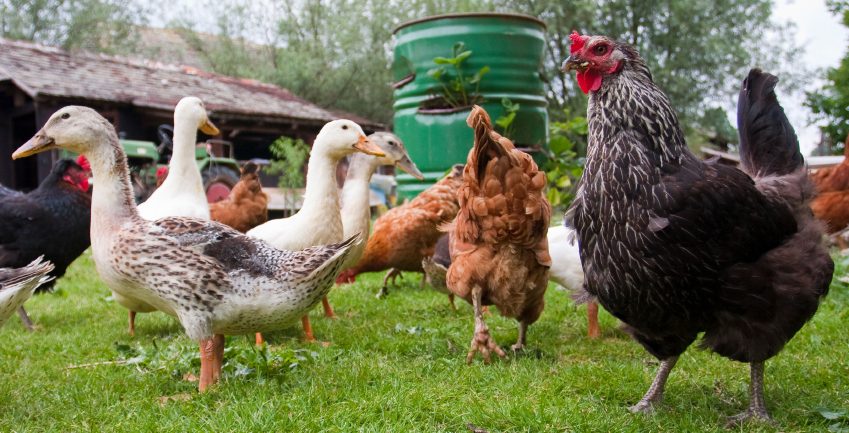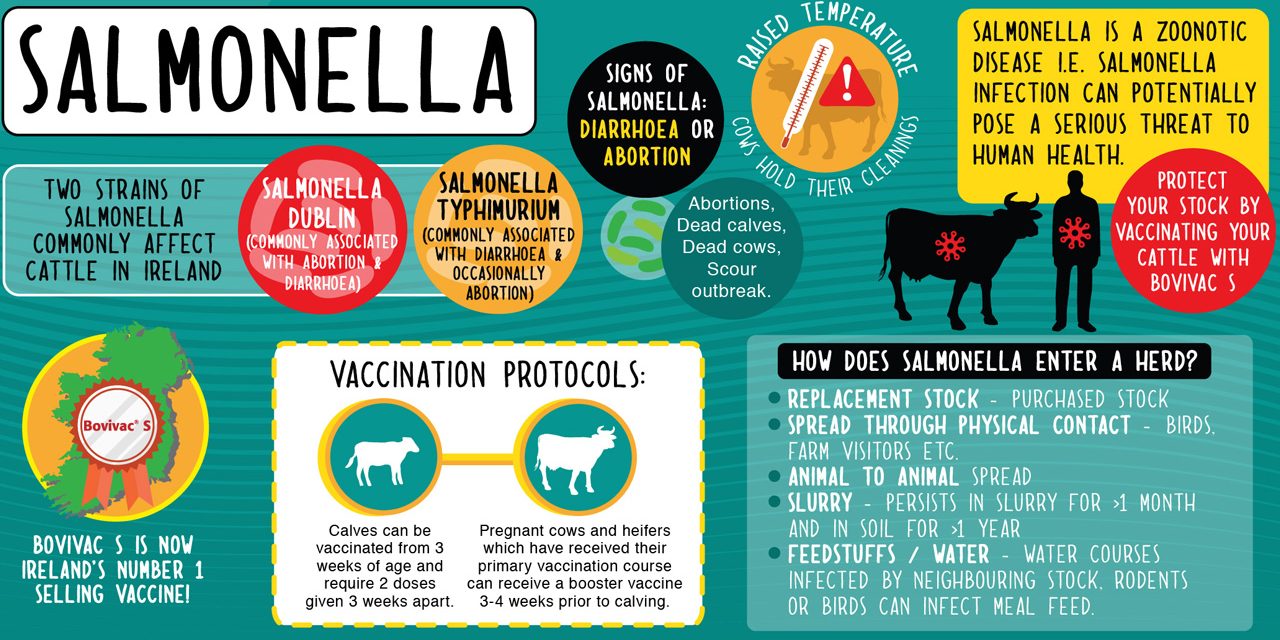If you keep chickens in your backyard, then you have to be careful to avoid contracting salmonella from them. There are many ways your backyard chickens can catch salmonella. The first is known as the horizontal transfer. If this is the case with your chickens, then it is really no fault of yours. Horizontal transfer is the passing of salmonella from parents to offspring. In this case, the chickens have already been infected before they have hatched.

A good breed blue-ribbon show chicken.
When you purchase chickens from shows, auctions and other places and add them to your own flock, there is the tendency that they may pass on any illnesses they might be carrying. The easiest way this can happen is if they get their droppings into the water container or feed and the other chickens pick them up while eating or drinking.
The third is through you, the handler. It is possible for you to soil your hands with salmonella and then introduce it to your chickens while pouring their feed or changing their water, if you do not keep a high standard of proper hygiene.
The tricky thing with salmonella is that your hens don’t have to be sick to pass it on. Chickens only become sick when the bacterial load is high or they are immunocompromised. So, you may pick up a bird that is seemingly healthy, without knowing that it could be a biological disaster for your backyard chickens.
The problem posed by the consumption of backyard chickens that carry salmonella is similar to the problem presented by opioid abuse. In both cases, people are ignorant of the dangers which make them a potential source of an epidemic or an outbreak of health-related issues.
Ducklings and pet chickens are implicated in infecting more than 900 people with salmonella this year alone which, according to the Centers for Disease Control and Prevention (CDC) is the highest number to date.
There is a current upsurge in the number of people who are raising chickens and ducks. This has a number of benefits including connecting with nature and having easy access to fresh eggs and meat. However, with the increase in benefits comes the increase in risks of disease.
Most people who contact salmonella recover after a few days without treatment. The symptoms usually associated with the disease include fever, diarrhoea and abdominal cramps. There are cases when hospitalization is inevitable, while others can be fatal.

Chicken and ducks roam freely in a yard by the green grass.
So far, this year it is reported that 961 people across 48 states have contracted the disease from backyard birds. A record 200 people have been hospitalized and there has been one reported death in North Carolina.
The good news is that if you practice proper hygiene like washing your hands regularly with soap and water, you can protect yourself from contracting this disease. When salmonella is transferred through the eating of meat, it is because the meat has not been properly cooked. Keeping in mind the ways you could contract the disease can help you to avoid it -prevention is always better than cure. Have a look at CDC’s suggested ways to reduce the chance of contracting salmonella here.







